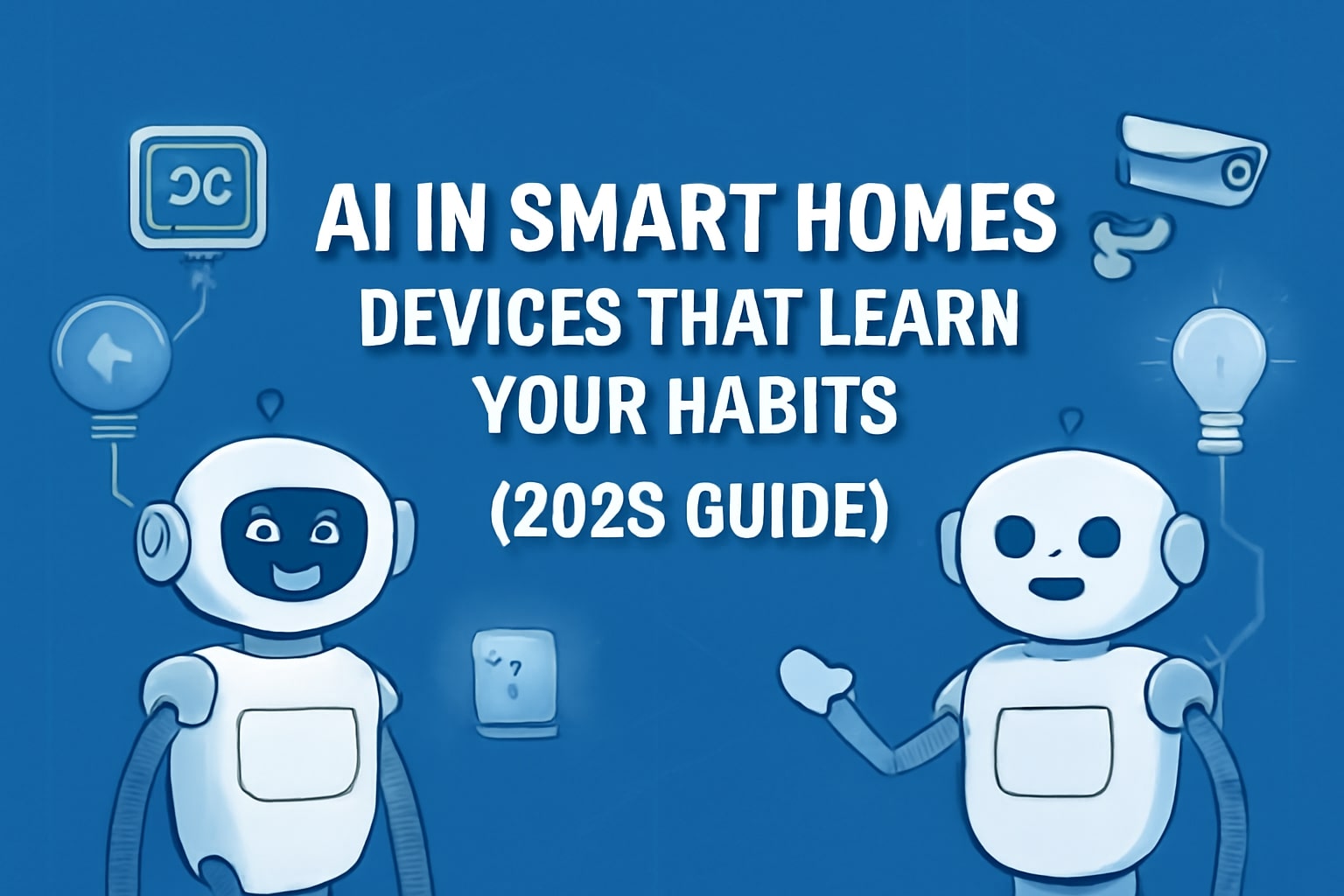AI in Smart Homes 2025 is transforming daily living. No longer limited to simple voice commands, today’s smart homes are evolving into intelligent ecosystems that anticipate needs before you even speak. With Artificial Intelligence powering devices, homes can now learn your routines, preferences, and habits, creating a seamless, personalized, and energy-efficient lifestyle.
From Reactive to Proactive: The AI Difference
Traditional smart homes reacted to commands like, “Hey Google, turn on the lights.” In contrast, AI in Smart Homes 2025 makes the shift to proactive intelligence. Now, lights turn on automatically as you arrive, thermostats adjust based on weather, and appliances suggest tasks before you think of them.
Key AI-Powered Smart Home Devices
1. Smart Thermostats (Nest Learning Thermostat, Ecobee)
How AI Works: These devices learn your daily patterns and temperature preferences. Within days, they create automated schedules that maximize both comfort and energy savings. Motion sensors detect when you’re home or away, adjusting settings automatically.
2. Smart Speakers & Displays (Google Nest Hub, Amazon Echo)
How AI Works: More than music players, smart speakers have become the hub of connected living. They recognize your voice, deliver personalized updates such as commute times, and orchestrate routines like “Good Morning” sequences that adjust lighting, read the news, and start your coffee.
3. Robot Vacuums (iRobot Roomba j7+, Roborock S8)
How AI Works: Advanced computer vision allows robot vacuums to detect and avoid obstacles such as cords, shoes, and even pet messes. They create detailed maps of your home, ensuring efficient cleaning, and can be directed to tidy up specific rooms on demand.
4. Smart Security Systems (Google Nest Cam, Ring Alarm)
How AI Works: Security devices are now smarter than ever. They can distinguish between people, pets, and vehicles, reducing false alarms. Some systems even recognize familiar faces, sending instant alerts only for unknown visitors.
5. Smart Appliances (Samsung Bespoke AI Laundry, AI Refrigerators)
How AI Works: Appliances are evolving into true household assistants. A washing machine detects fabric type and soil level to select the best cycle, while AI-powered refrigerators track inventory and recommend recipes based on what’s inside, even adding groceries to your shopping list automatically.
The Power of Routines and Automation
The greatest advantage of AI in Smart Homes 2025 comes from automation across multiple devices. Instead of handling each task individually, AI links them into routines that make life effortless.
- Goodnight Routine: AI locks the doors, turns off lights, adjusts the thermostat, and arms the security system at your usual bedtime.
- Energy-Saving Mode: When you’re away, AI lowers energy use automatically and restores comfort settings right before you typically return.
Privacy and Security Considerations
With intelligence comes responsibility. Because smart devices collect data, protecting privacy is crucial. Homeowners should regularly review privacy settings, understand what data is collected, and apply strong security measures.
- Use unique, complex passwords for each device.
- Enable two-factor authentication where possible.
- Update device software regularly to patch vulnerabilities.
AI in Smart Homes 2025 is ushering in the age of “ambient computing,” where technology fades into the background. Instead of reacting to commands, your home quietly supports your lifestyle—saving energy, enhancing comfort, and improving security in ways that feel effortless.
